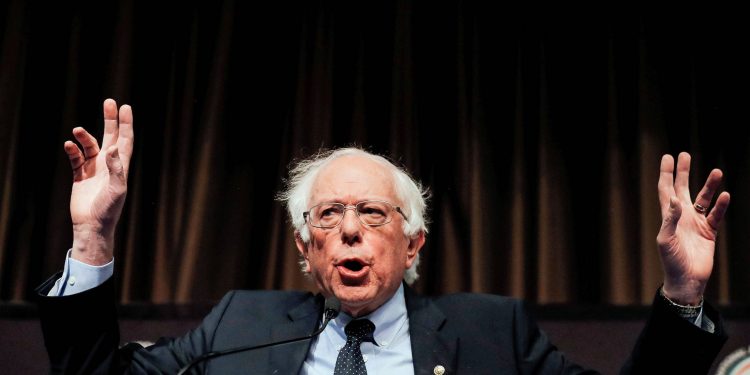
The presidential candidate from Vermont has been slapped with three Pinocchio’s for an “apples and oranges” comparison on the costs of Medicare for All.
September 19, 2019

The presidential candidate from Vermont has been slapped with three Pinocchio’s for an “apples and oranges” comparison on the costs of Medicare for All.
September 19, 2019
Bernie Sanders is at it again on Medicare for All. A few months after the Washington Post Fact Checker had to dissect Sanders’s misleading healthcare cost claims, the Presidential candidate from Vermont has been slapped with three Pinocchio’s for an “apples and oranges” comparison on the costs of Medicare for All.
Back in June, Sanders said that the average family of four would pay less under his Medicare for All Plan for healthcare costs. The Washington Post Fact Checker deemed the claim misleading and said Sanders wasn’t telling the whole story, leaving out crucial context.
The most recent fact-checked claim comes from a moment during the last Presidential primary debate where Bernie Sanders says the cost of Medicare for All is actually lower than the cost of a “status quo” system.
The campaign points to an opinion piece in a Washington Post blog to back up Sanders’s claim. The only problem is that the author of that opinion piece told the Fact Checker “he has not read academic studies that looked closely at the impact of a Medicare-for-all plan on national health expenditures.” Further hurting Sanders’s case is that “all but one of five major studies, from the left to the right, predict the Sanders plan would increase health spending, not reduce it.”
The author of the study that Sanders is citing as evidence that his plan would reduce costs says its a bit more complicated than what the candidate makes it out to be.
Washington Post: “‘Bernie is overstating things,’ Friedman said. “Even with optimistic assumptions about savings realized and a slowdown in growth to Canadian or European growth rates and an actuarial value of 87 percent (not the 96 percent in his program), spending would not decline by $20 trillion, or 40 percent.’”
Keep in mind this is only one of five studies that showed a decrease in health expenditures over a ten year period. As a result, the Fact Checker gave Bernie three Pinocchios for his statement during the debate that Medicare for All would decrease healthcare costs over a ten year period compared to the status quo.
Washington Post: “Sanders implied during the debate that his Medicare-for-all plan would reduce health-care spending compared to the “status quo” of $50 trillion over 10 years. His use of the “more than $30 trillion” figure might have led listeners to assume he was comparing the two figures. Certainly that’s how the authors of these studies interpreted these comments.
“That might have been a logical assumption. During the debate, his staff shared, as the source of the $50 trillion figure, a pair of Washington Post opinion columns that made a similar comparison. But a spokesman has since said that the campaign was not endorsing the analysis in those columns. Instead, he says Sanders was simply pointing to a government estimate for health expenditures over a 10-year period…
“…On balance, as uttered during the debate, the statement is mostly false. Four of the five key studies on the impact of the Sanders plan estimate that national health expenditures will rise over 10 years, while the author of the fifth predicts a decline but says Sanders’s statement is exaggerated.”